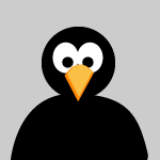…but how do you know for sure?
It shouldn’t come as a surprise to you that artificial intelligence has, all of a sudden, taken the centre stage. With models like OpenAI’s ChatGPT, Adobe’s Firefly and Microsoft’s Copilot being so readily available to anyone with a laptop or smartphone, it’s only natural that people have integrated these supremely easy-to-use, workload-minimizing tools into anything they possibly can. Who doesn’t want to do less work, right?
For your typical university student who wants nothing more than to spend less time working, this is potentially one of the most attractive concepts in history. However, as you probably already know by this point, this presents a whole slew of problems. I mean, this article could actually be written by A.I., and you would never know. I could be lying (I’m not), but the only thing you can really do is take my word for it.
This goes to show—anyone these days could be using artificial intelligence to generate the product they need: an article, a painting, you name it. This is generally to their own detriment. To spell out the obvious, you don’t learn anything when using A.I., which contradicts the very essence of study and creation. Furthermore, A.I. tends towards stereotypes and biases, perpetuating harmful ideas in many of its products. (By the way: using it academically without permission violates Carleton’s integrity policy, which you know better than to do.)
Artificial intelligence also dumbs down creative expression. In a course I took called Internet and Big Data Law, my final assignment was to write and ultimately reflect on a story partially created by ChatGPT to better understand how A.I. models behaved from creative, ethical, and legal viewpoints. My study concluded that artificial intelligence is very well capable of writing passable creative works, but lacks flair, emotion, spirit—humanity. Eloquent descriptions were replaced with curt explanations. Unique characters were killed, and basic, shallow clichés took their places. This all goes to show the danger of A.I. to creativity: everything it creates follows the same formula, which makes it all the same—no risks, no new ideas.
I work creatively in both my staff and student roles at Carleton. My program is new and my professors are young, which means I use and study a lot of new technologies and concepts. Artificial intelligence is no exception: my Immersive Storytelling class encouraged us to use A.I. to enhance our 3D models and animations, and I used A.I.-generated sound effects for a podcast in another class. However, contrary to what I just wrote, I don’t feel like my creativity was at risk during any of this. Instead, I viewed artificial intelligence not as a tool to replace my creativity, but as one to allow me to focus on the aspects of these projects in which I truly desired to express myself. This isn’t to say that movie directors should replace their orchestras with A.I., but if you’re an average person like me, there is a way to collaborate with, not rely on A.I. that satisfies the requirements of human expression and the usage of new, fancy technologies.
Humanity gravitates towards advancement and convenience—it’s why we’ve transcended animalhood. Just as paper writing was to stone carving, and steel tools were to bronze, artificial intelligence is here to stay. What’s important is that we choose to integrate it in a way that allows for continued artistic expression, effective learning, and individuality amongst creators, not as a shoddy replacement. A.I. has always been unavoidable. If this leads to SkyNet à la Terminator, let’s just hope that we build a killswitch.
(This article was written 100% completely by a human. Read this article by The Guardian if you want to see the reverse.)
Recent Quote the Raven Posts
Read the latest from our student Bloggers









 Ask Me
Ask Me